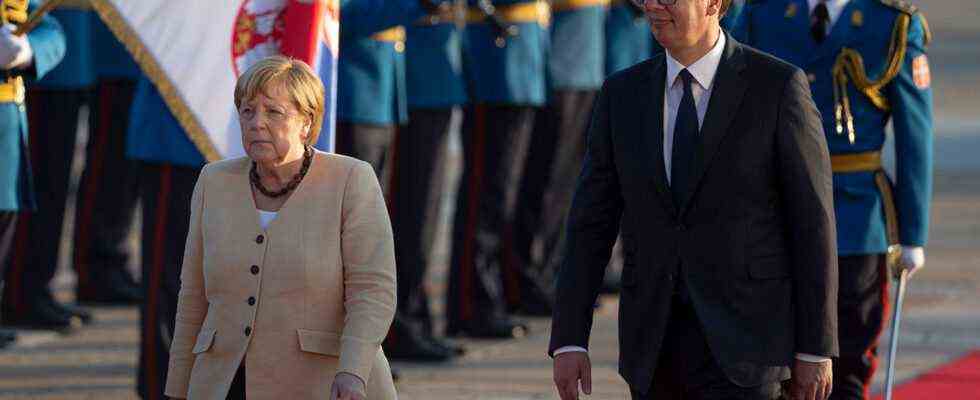As of: 14.09.2021 09:26 a.m.
Merkel has long been campaigning for the Western Balkans to come closer to the EU. On her last visit as Chancellor, some in the region are still hoping for her influence, while others are only awaiting a farewell tour.
Angela Merkel is in her role as Federal Chancellor for the last time in the Western Balkans. For some it is a journey with symbolic power that could bring movement into frozen conflicts. For others, this is nothing more than a farewell visit with no real perspective for the big problems of the small Western Balkan states.
The list of problems in the Western Balkans is long. Corruption, abuse of power, a weakened judiciary and often a lack of freedom of the press and the media. And last but not least: the unresolved conflict between Serbia and Kosovo, which are having a hard time rapprochement.
Small advances, but no solutions
Observers agree that even Merkel’s last visit as Federal Chancellor will not bring any concrete solution steps. The first stop on their trip to the Western Balkans on Monday evening was Belgrade. At a meeting with Serbian President Aleksandar Vucic, she referred to the small progress made since she launched the so-called Berlin Process in 2014 – a discussion forum in which topics from the Western Balkans are discussed.
After all: Serbia and Kosovo are talking to each other. The Serbian Prime Minister Ana Brnabic and the Prime Minister of Kosovo, Albin Kurti, will also take part in the summit in Tirana. But more movement is not to be expected, and Merkel cannot offer any incentives to do so. The clear prospect of EU accession is seen as such an incentive for all Western Balkan states, but Merkel is powerless here too.
Dependence on the arbitrariness of the EU member states
For the political scientist Florian Bieber, the Chancellor’s tour is not much more than a farewell trip. Nothing has changed in the fundamental problem, says Bieber. Individual member states can block EU accession, making accession prospects untrustworthy.
They are not linked to reforms, but depend on the arbitrariness of the member states. This has led to a certain resignation in the countries of the Western Balkans. “Unfortunately, this is something where the German Chancellor was not able to offer the region a more stable future. And that is ultimately also a failure of the German Chancellor,” says Bieber.
In Tirana, where the Western Balkan Summit takes place today, the situation is different. In interviews with German media, the Albanian Prime Minister Edi Rama raves about the reliability and strength of the German Chancellor. For their visit, he had the German flag hoisted on all major access roads.
Hope for further commitment
In addition to Rama, the Chancellor will also meet the heads of government of Montenegro, North Macedonia and Bosnia and Herzegovina. Some of the heads of government, it is said from advisory circles, harbor the hope that Merkel will be able to use contacts and influence after her time as Chancellor to continue to stand up for the interests of the Western Balkans.
But it is unclear whether a future Federal Chancellor will stand up for them to the same extent as Merkel did. “Merkel is not in a position to ensure continuity between her and her successor government. So it is not clear whether there will be a follow-up. Therefore, I consider the visit to be more of a signal that Germany will continue to like the region before will be interested, “said Bieber.

